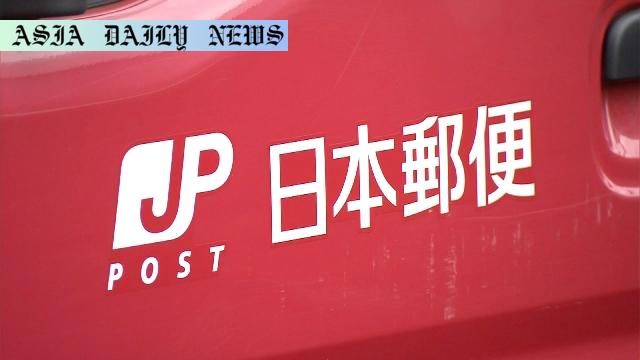Japan Post’s delivery operations face disruption as transport ministry revokes permit for 2,500 vehicles due to safety breaches.
- Japan’s transport ministry has revoked Japan Post’s permit for 2,500 delivery vehicles.
- Mandatory alcohol and health checks were improperly conducted at 75% of Japan Post’s offices.
- Violations included falsifying roll call records and discrepancies in compliance.
- Japan Post will lose access to 2,500 trucks for five years, impacting operations.

Japan Post’s Non-Compliance Leads to Revocation of Permits
In a significant development that highlights the importance of safety and regulatory compliance, Japan Post has faced a major operational blow. The country’s transport ministry has revoked the company’s permit to operate around 2,500 delivery vehicles—a decision prompted by widespread misconduct in adherence to mandatory alcohol and health checks for delivery employees.
The catalyst for this decision comes in the aftermath of a comprehensive internal survey conducted by Japan Post earlier this year. In April, the company disclosed alarming findings: out of 3,188 post offices, violations were identified in 2,391—equating to roughly 75% of the facilities. These violations predominantly concerned incomplete or improperly conducted roll calls, which are mandatory checks to ensure sober and healthy operations of delivery personnel. Furthermore, investigations revealed instances of deliberate falsification of roll call records, showcasing a deeper problem in the company’s operational and ethical practices.
As punishment for these regulatory violations, the transport ministry has made a decisive move, rendering approximately 2,500 trucks and vans unusable for deliveries for the next five years. This hard-hitting mandate underscores the seriousness of adhering to safety checks in industries where public interactions are a key component. Senda Tetsuya, the company’s president, has acknowledged the decision publicly, stating Japan Post’s commitment to taking the punishment seriously. He promised revamped management efforts to ensure that such breaches are not repeated, showing a clear focus on regaining trust.
Rippling Effects on Operations and Public Perception
The loss of operational permits for such a significant number of delivery vehicles undoubtedly poses logistical challenges for Japan Post. With more than 30,000 delivery mini-vehicles still active, the transport ministry has also ordered thorough inspections, signaling that restoring confidence will be no easy feat. The immediate repercussions are expected to include delays, increased dependency on alternate vehicles, and reductions in service satisfaction. At the same time, public perception of the brand might be at stake—trust, once broken, is difficult to rebuild, particularly when safety and ethics are questioned.
This case brings into sharp focus the need for large organizations to have stringent checks, not merely for meeting regulatory requirements but as fundamental essentials for safeguarding reputation. Despite Japan Post’s claims of internal reform, stakeholders, including customers and government entities, will demand sustained accountability and demonstrable changes in operational practices during the recovery phase.
Broader Implications for Corporate Responsibility
The actions against Japan Post are a potent reminder for corporations worldwide of the consequences of failing to uphold safety and ethical standards. Regulatory bottlenecks in transportation industries are often regarded as non-negotiable, given the high stakes attached. This scandal underscores that compliance is not just a formality—it protects both workers and customers from harm while promoting operational excellence. Failure to prioritize these aspects can lead to penalties, reputational damage, and disrupted services.
For Japan Post, the next five years will be critical. As the organization attempts to recover from this setback, key stakeholders within the corporation will need to prioritize transparency, leadership reform, and consistent checks — not just to satisfy regulators but also to win back the public’s trust. Only time will tell whether Japan Post emerges stronger and more resilient through its commitment to reform and accountability.



Commentary
Implications of Japan Post’s Permit Revocation
The revocation of Japan Post’s permit to operate 2,500 delivery vehicles marks a significant moment in corporate accountability, particularly in the realm of public service. The actions by Japan’s transport ministry are not only a reprimand but also a wake-up call for corporations to prioritize safety and ethical compliance. Understanding the implications of this incident requires a deeper dive into how such breaches disrupt operational reliability and dent public trust.
The Role of Accountability in Public Services
Japan Post, as an essential public service provider, has an intrinsic responsibility to uphold the highest standards of operational safety. The failure to conduct mandatory alcohol and health checks at such a substantial scale reveals a culture of oversight and neglect within the organization’s internal processes. By falsifying records, Japan Post not only breached regulatory agreements but also put its workforce and public safety at risk. The decision to ban 2,500 vehicles for five years is harsh but justified, given the scale and severity of the violations.
Challenges in Rebuilding Trust
While President Senda Tetsuya’s acknowledgment of the penalty and promise to spearhead corrective actions is a step in the right direction, rebuilding both trust and operational efficiency will prove to be an arduous task. Public perception often hinges on transparency and corrective actions, and it will be imperative for Japan Post to demonstrate authentic and sustainable change. Transparency in auditing practices, regular compliance training, and public disclosures can pave the way toward genuine reform and redemption.
Lessons for Global Corporations
This situation serves as a cautionary tale for corporations worldwide, particularly in sectors with public-facing roles. Safety and ethical adherence are not optional; they form the backbone of trust and operational sustainability. Failing to prioritize these pillars can lead to escalated consequences, as seen in this instance. Organizations must proactively institute checks and regulatory alignment, emphasizing preventive measures over reactive strategies.
Ultimately, this incident reinforces the importance of corporate responsibility, not just for regulatory compliance but as an essential element of branding and customer loyalty. While Japan Post faces turbulence, the lessons from its ordeal are timeless and universally applicable across industries and markets.